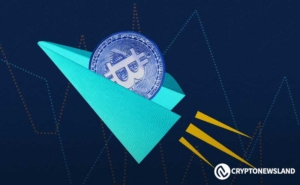Future Bitcoin price dips to $90K ‘routine profit taking’ — Why BTC traders keep buying
Bitcoin ( BTC ) experienced unprecedented intraday volatility on Dec. 5, with a dramatic $12,396 price swing that saw the cryptocurrency reach a remarkable low of $91,463. Analysts estimate that over $4 billion worth of leveraged BTC futures were liquidated during this period, surpassing the previous peak recorded during FTX's bankruptcy in November 2022.
What truly stood out during the Dec. 5 flash crash was the $5,160 rebound in less than 15 minutes after hitting the low, as buyers aggressively defended the $96,500 support level. Moreover, Bitcoin derivatives metrics maintained their prior bullishness, signaling that traders remain confident in the ongoing upward momentum.
Bitcoin margin, futures and options markets show resilience
To gauge market sentiment, analyzing Bitcoin’s margin markets is crucial. Unlike derivatives contracts, which require both buyers and sellers, margin markets enable traders to borrow stablecoins to purchase spot Bitcoin or borrow BTC to initiate short positions, wagering on a price decline.
Bitcoin margin long-to-short ratio at OKX. Source: OKX
The Bitcoin long-to-short margin ratio at OKX currently stands at 20x in favor of long (buy) positions. Historically, excessive confidence pushes this ratio above 40x, while levels below 5x favoring longs are generally interpreted as bearish.
To determine whether large investors or "whales," have shifted sentiment following the rejection at the $103,500 level, data from BTC futures markets is critical. The top traders' long-to-short ratio consolidates positions across spot, perpetual, and monthly futures contracts. A higher ratio indicates a preference for long positions, while a lower ratio suggests professional traders are leaning toward short (sell) contracts.
Top traders Bitcoin long-to-short ratio. Source: CoinGlass
At Binance, the long-to-short ratio currently stands at 1.65, matching levels from two days ago and exceeding the two-week average of 1.52, favoring long positions. Similarly, OKX top traders have turned more bullish, with their long-to-short ratio rising from 1.15 to 1.37 over the same period. These metrics at both Binance and OKX reflect a clear tilt toward bullish bets in absolute terms.
Related: Financial Times issues ’apology’ to Bitcoiners after 13 years of criticism
To assess whether professional traders are displaying excessive confidence, Bitcoin options market data is critical. The 25% delta skew serves as a key indicator, showing when arbitrage desks and market makers overprice protection against upward or downward movements. If traders anticipate a price drop, the skew typically rises above 7%. Conversely, heightened optimism tends to push the skew below -7%.
Bitcoin 2-month options 25% delta skew, put-call. Source: Laevitas.ch
According to data from Laevitas.ch, the Bitcoin 2-month options 25% delta skew is currently at -8%, aligning with levels observed on Oct. 4. This negative skew highlights continued optimism, as put (sell) options are trading at a discount compared to call (buy) options. These findings reinforce bullish sentiment, corroborating the positive outlook in futures and margin markets.
Although there’s no certainty that Bitcoin will surpass the $103,500 all-time high in the short term, derivatives metrics indicate strong confidence among traders. Even if the price dips to $90,000, such a move is likely to be seen as routine profit-taking following Bitcoin's impressive 53% rally between Nov. 5 and Dec. 5.
This article is for general information purposes and is not intended to be and should not be taken as legal or investment advice. The views, thoughts, and opinions expressed here are the author’s alone and do not necessarily reflect or represent the views and opinions of Cointelegraph.
Disclaimer: The content of this article solely reflects the author's opinion and does not represent the platform in any capacity. This article is not intended to serve as a reference for making investment decisions.
You may also like
The tariff shock wave hits the pain point of the US government leadership
Argentina's lifting of currency controls triggers a surge in local stablecoin trading
BTC Breakout Alert: Wedge Crushed, $96K–$102K on the Horizon?

